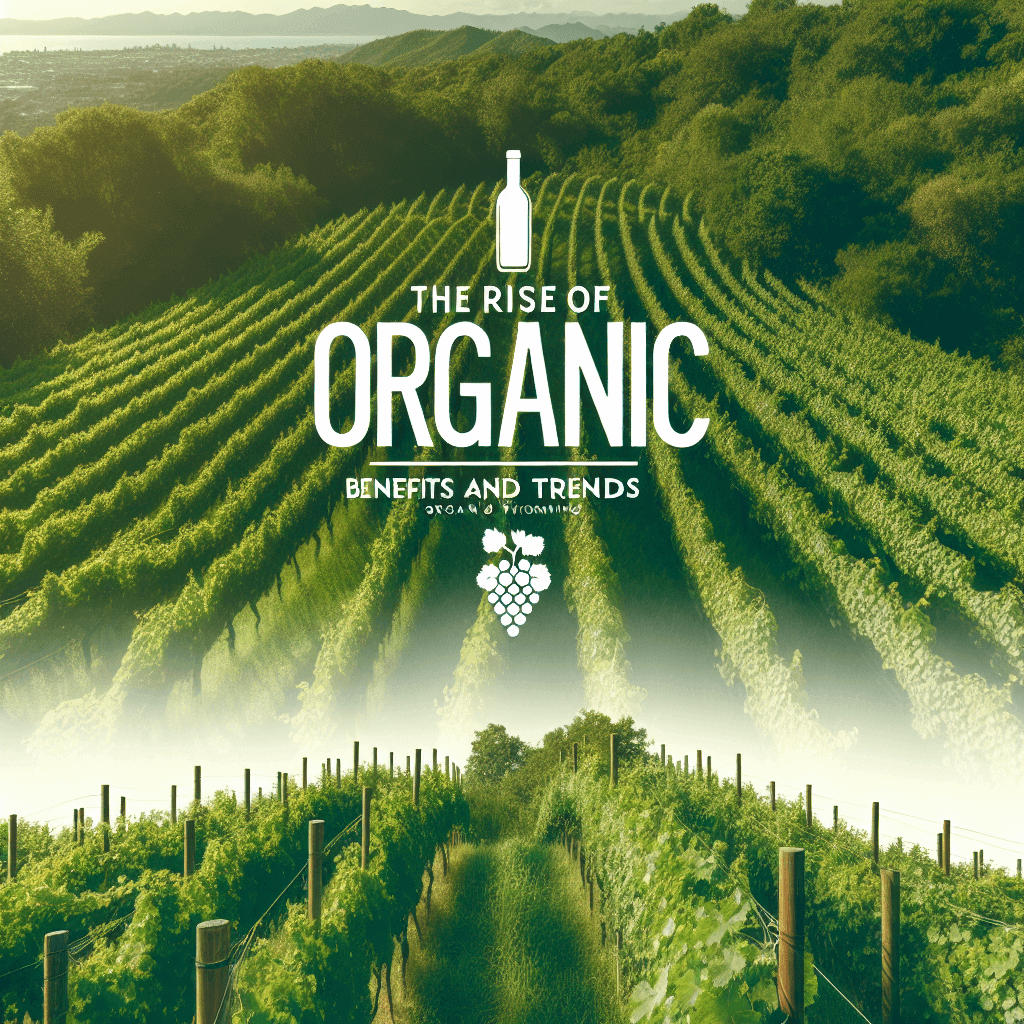Introduction: Organic wines are becoming increasingly popular as consumers seek healthier and more sustainable options. This trend is driven by a growing awareness of the environmental impact of conventional farming practices and the desire for more natural products. In this article, we will explore the benefits of organic wines, the trends driving their popularity, and why they are an excellent choice for wine lovers.
Health Benefits: One of the primary reasons consumers are turning to organic wines is the health benefits they offer. Organic wines are made without synthetic pesticides, herbicides, or fertilisers. This means that the grapes used in organic wines are grown using natural methods, reducing the risk of harmful chemical residues.
- No Synthetic Chemicals: Organic wines are free from synthetic chemicals, making them a healthier option for those concerned about their health.
- Natural Ingredients: Organic wines often contain fewer additives, resulting in a more natural product.
- Lower Sulphite Levels: Many organic wines have lower levels of sulphites, which can reduce the risk of headaches and allergic reactions for some individuals.
Environmental Impact: Organic farming practices have a positive impact on the environment. By avoiding synthetic chemicals, organic vineyards promote biodiversity and improve soil health. This not only benefits the environment but also enhances the quality of the grapes used in winemaking.
- Sustainable Farming: Organic vineyards use sustainable farming practices that help preserve the environment.
- Soil Health: Organic farming improves soil health, leading to healthier grapevines and better-quality grapes.
- Biodiversity: Organic vineyards support biodiversity by creating a habitat for beneficial insects and wildlife.
Certification and Standards: To be labelled as organic, wines must meet specific certification standards. These standards vary by country but generally require that the grapes are grown without synthetic chemicals and that the winemaking process adheres to organic principles.
- Organic Certification: Look for certification labels such as USDA Organic, EU Organic, or Soil Association Organic to ensure that the wine meets organic standards.
- Strict Guidelines: Organic certification bodies enforce strict guidelines to ensure that wines are produced using organic methods.
- Transparency: Organic certification provides transparency, allowing consumers to make informed choices.
Consumer Demand: The demand for organic wines is on the rise, driven by a growing awareness of health and environmental issues. Consumers are increasingly seeking out organic products, including wines, as part of a broader trend towards healthier and more sustainable lifestyles.
- Health-Conscious Consumers: More consumers are choosing organic wines for their health benefits.
- Environmental Awareness: Increased awareness of environmental issues is driving demand for organic products.
- Market Growth: The organic wine market is growing rapidly, with more wineries offering organic options.
Innovation in Organic Winemaking: Winemakers are constantly experimenting with new techniques and grape varieties to produce unique and high-quality organic wines. This innovation is helping to drive the popularity of organic wines and expand the range of options available to consumers.
- New Grape Varieties: Winemakers are exploring new grape varieties to create unique organic wines.
- Innovative Techniques: Organic winemakers are using innovative techniques to enhance the quality and flavour of their wines.
- Quality Improvement: Continuous innovation is leading to improvements in the quality of organic wines.
Conclusion: The rise of organic wines is a testament to the growing demand for healthier and more sustainable options. With their numerous health benefits, positive environmental impact, and increasing availability, organic wines are an excellent choice for wine lovers. Whether you are a casual wine drinker or a connoisseur, organic wines offer a delicious and responsible way to enjoy your favourite beverage.

